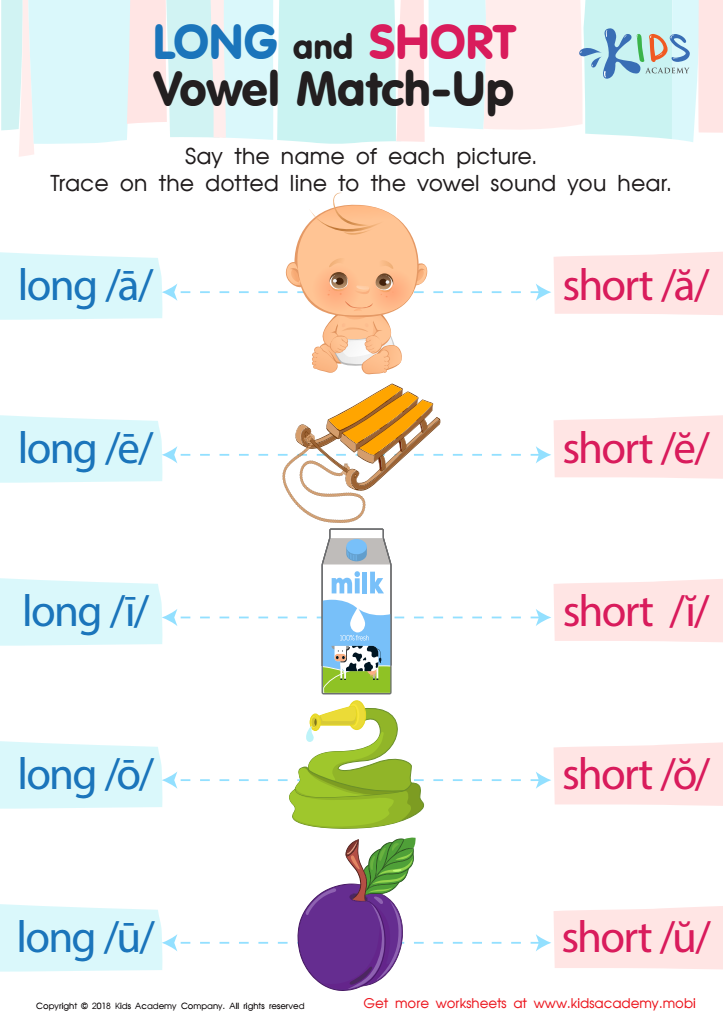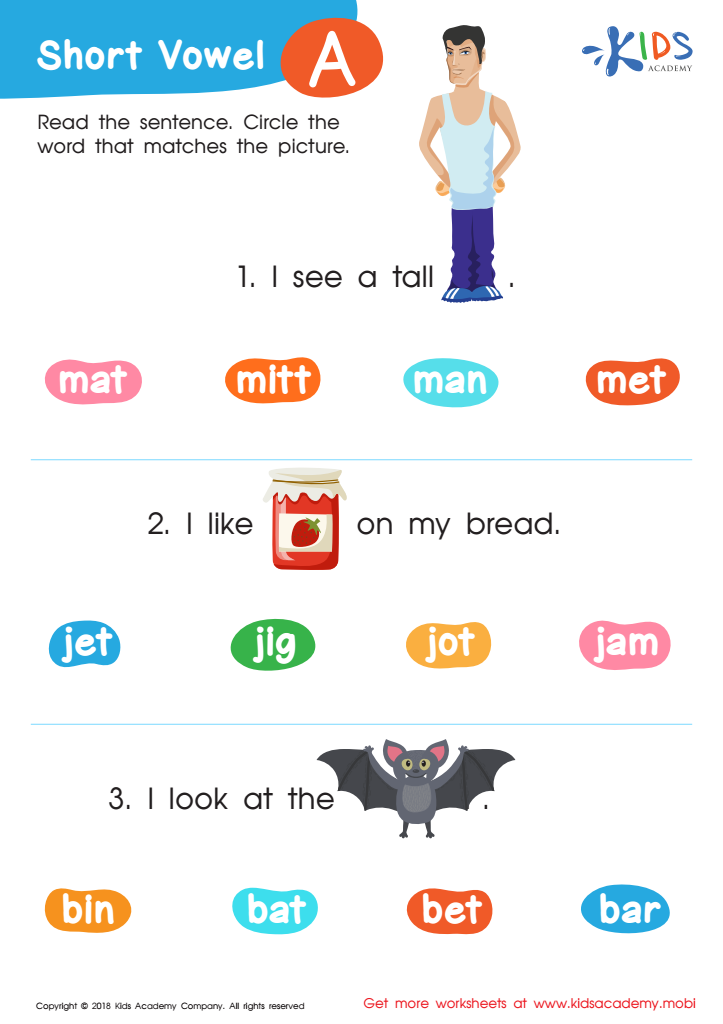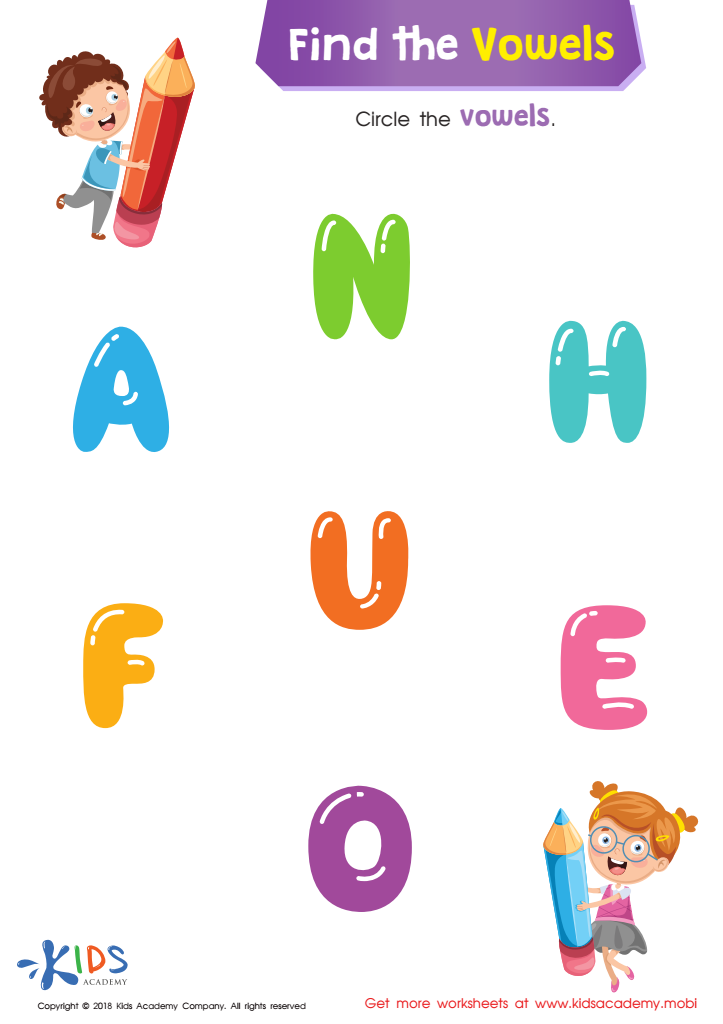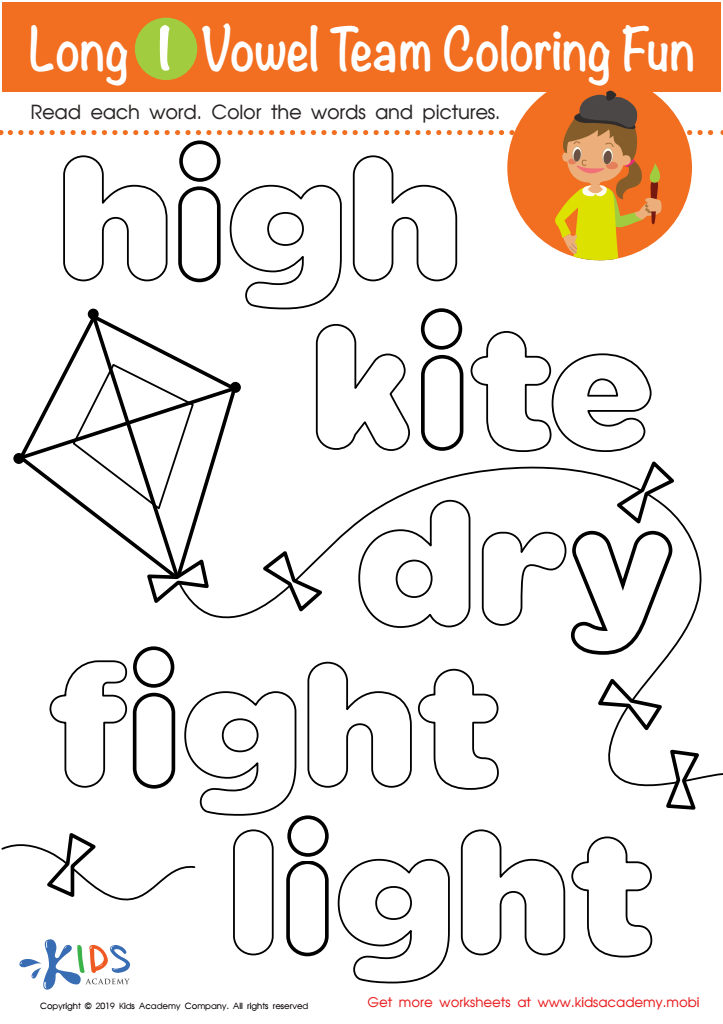Vowel Recognition Normal Phonics Worksheets for Ages 3-6
9 filtered results
-
From - To
Discover our engaging Vowel Recognition Normal Phonics Worksheets, designed specifically for children aged 3-6. These worksheets provide a fun and interactive way for young learners to identify and understand vowels, laying a strong foundation for early literacy skills. Each activity encourages critical thinking and reinforces phonics concepts through colorful illustrations and age-appropriate exercises. Perfect for home or classroom use, these resources will keep children entertained while they learn. Foster a love for reading and enhance your child's vocabulary with our comprehensive phonics worksheets, expertly crafted to suit their developmental needs. Start your child's phonics journey today!


Long and Short Vowel Match up Reading Worksheet


Let's Check Long Vowels: Assessment Worksheet


Short Vowel /a/ Worksheet


Short Vowels /e/, /i/, and /u/ Worksheet


Long Vowel Maze /o/ and /i/ Worksheet


Short Vowel Eggs Worksheet


Find the Vowels Reading Worksheet


Long I Vowel Team Coloring Worksheet


Long and Short Vowel Sentences: Assessment Worksheet
Vowel recognition is a foundational skill in early literacy that significantly impacts a child's reading and writing development. For children aged 3-6, understanding vowels is crucial because they are the building blocks of words. Recognizing vowels helps young learners decode language, allowing them to blend sounds and read simple words effectively.
Parents and teachers should prioritize vowel recognition because it fosters phonemic awareness—essential for spelling and vocabulary development. When children grasp vowel sounds, they can more confidently engage with books, enhancing comprehension and enjoyment of reading. Additionally, early mastery of vowel recognition supports future learning experiences, making transition to phonics and more complex literacy skills smoother.
Encouraging playful and interactive activities that focus on vowels, such as songs, games, and storytelling, can captivate children's attention while ensuring they grasp essential concepts. When adults closely participate in this learning journey, it also strengthens the bond between parent and child or teacher and student.
By emphasizing vowel recognition through engaging practices, parents and educators equip children with vital skills that will serve them throughout their academic careers and foster a lifelong love of reading. Ultimately, investing time and resources in this fundamental area ensures a strong literacy foundation for all children.
 Assign to My Students
Assign to My Students














